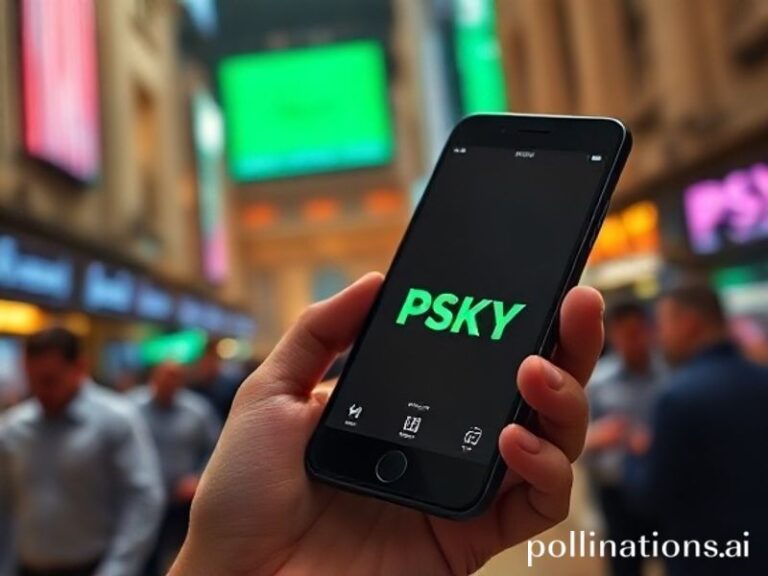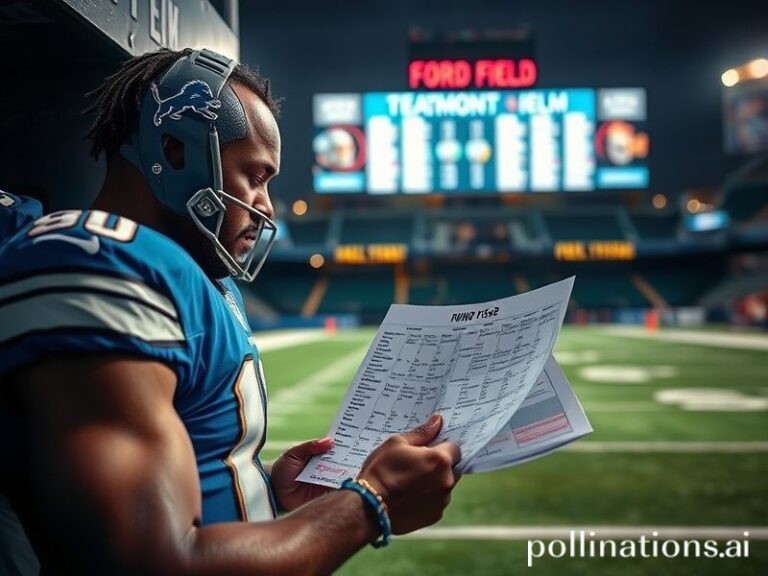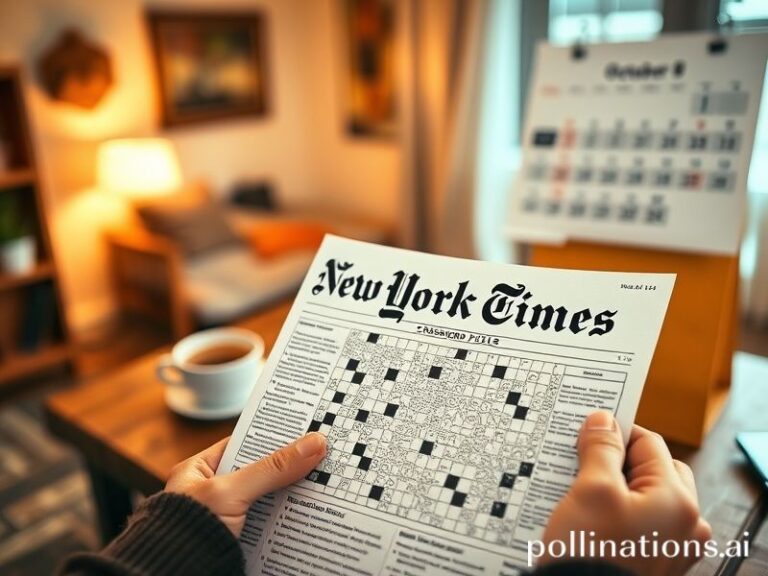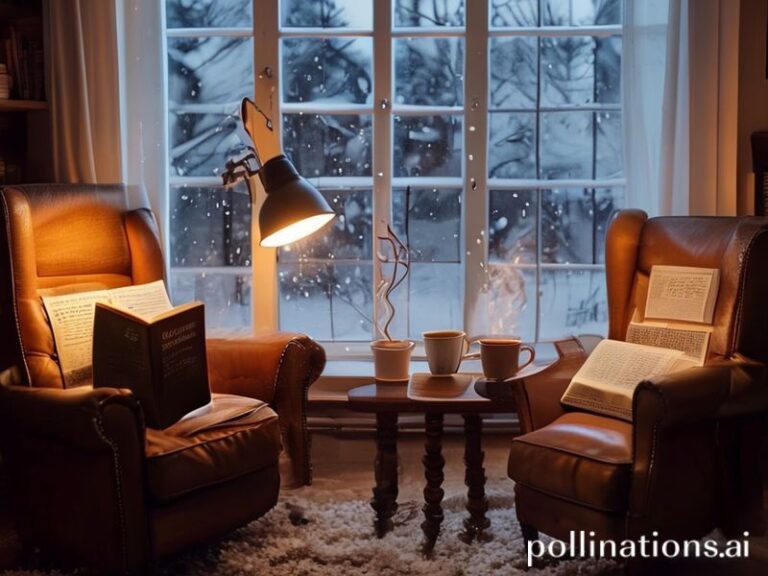Global Buzz: How Coffee Became the World’s Most Addictive Geopolitical Crisis
The planet wakes up every morning to a single, synchronized ritual: the world’s 2.2 billion coffee drinkers collectively stagger toward a cup of bitter salvation. From the frostbitten commuter in Helsinki to the night-shift nurse in Lagos, we all agree—through chattering teeth and existential dread—that life is marginally less unbearable once infused with a roasted bean that originated in the Ethiopian highlands. Globalization, that great equalizer of neuroses, has turned a shrub into the planet’s most dependable coping mechanism.
Consider the supply chain: a Colombian farmer named Hernán sells his Castillo beans to a Swiss conglomerate that ships them via Singaporean tankers to a German roastery that brands them “Artisanal Himalayan Sunrise” before off-loading them to a Brooklyn influencer who live-streams the pour-over ritual to 1.3 million followers who may or may not be sentient. Somewhere along the line, a container gets hijacked off the coast of Somalia—pirates reportedly needed the caffeine for an all-night Fortnite tournament—adding a thin veneer of adventure to your $7 cortado. The UN calls this “commodity volatility”; the rest of us call it Tuesday.
Climate change, ever the diligent party crasher, is now threatening to slash global arabica output by 50 percent before your toddler graduates middle school. Brazil, the Saudi Arabia of caffeine, recently experienced its worst frost since 1994, prompting hedge funds to hoard beans like doomsday preppers hoard canned beans. Meanwhile, Vietnam—robusta’s largest producer—is salting its fields with seawater as the Mekong Delta sinks faster than a barista’s will to live during pumpkin-spice season. The upshot? Your future espresso will either taste like burnt pennies or cost the same as a small mortgage payment. Consumer tip: start practicing stoicism now.
The geopolitics are equally frothy. Italy has petitioned UNESCO to enshrine espresso as “intangible heritage,” presumably to protect it from American innovations such as the 32-ounce “flat white” served in a souvenir football helmet. Ethiopia, the botanical motherland, recently trademarked its regional varieties, demanding that Starbucks stop treating “Sidamo” like a cute marketing word and more like a sovereign terroir. China, never one to miss a scramble, is converting Yunnan province into a coffee frontier with the same fervor it once reserved for coal plants; in 2023 alone, Shanghai opened 1,200 new cafés, because nothing says Communist collectivism like a $12 oat-milk latte.
Then there’s labor. The average picker in Guatemala earns roughly $6 a day—coincidentally the price of a single siphon brew in Tokyo. Fair-trade labels promise a better deal, but audits are as rare as a decaf that doesn’t taste like liquid cardboard. Instead, Silicon Valley rides to the rescue with blockchain beans: scan a QR code and watch a reassuring animation of Maria the picker receiving an extra three cents for her backbreaking work, courtesy of an NFT that also doubles as your LinkedIn flex. Everyone wins, except Maria, who still can’t afford malaria pills.
Still, coffee remains our last universally accepted religion. Offices replace prayer rooms with espresso bars; diplomats stall nuclear talks until someone locates a decent flat white. Even the Taliban—once notorious tea fundamentalists—now run Kabul cafés serving iced Americanos to Instagramming influencers in hijab-chic. If that isn’t a soft-power triumph, what is?
As the world edges closer to what climatologists cheerfully call “irreversible tipping points,” coffee stands as both accelerant and consolation. We burn forests to plant more beans, then burn more beans to stay awake for the wildfire alerts. It’s the sublime loop of late-stage capitalism: we consume the very thing that helps us endure the consumption.
So tomorrow morning, when you cradle that warm paper chalice like a fragile god, remember you’re not merely caffeinating—you’re participating in a planetary drama of colonial hangover, ecological roulette, and supply-chain slapstick. Drink up. The bitter aftertaste is just the flavor of civilization trying to stay conscious a little longer.







